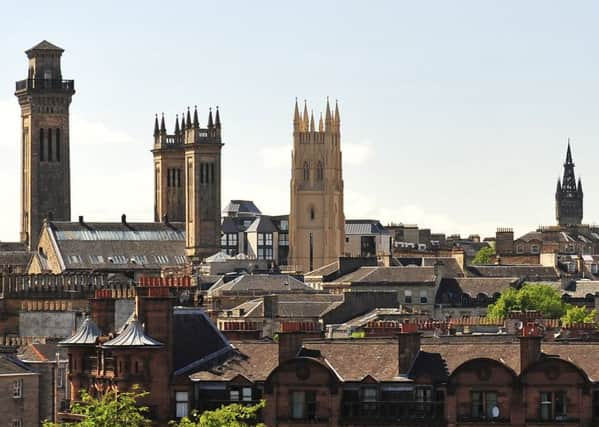Book review: Glasgow - The Autobiography, by Alan Taylor


It helps that he isn’t a Glaswegian, but a Musselburgh boy who spent the first half of his working life in Edinburgh, and who therefore came to it as a curious and somewhat nervous outsider; he found a city divided not by class, like Edinburgh, but by sectarianism. A fair comment, though it underestimates the class division between the leafy West End and the desolate housing schemes created by idealistic planners. He does, however, include a piece by Roy Jenkins who boasted that his Hillhead constituency “was the most highly educated of any constituency in the United Kingdom”.
Glasgow indeed has long been full of contradictions. In its industrial heyday when it boasted with justice of being “the Second City in the Empire” (though it’s odd that it conceded primacy to London) it also had, but rarely boasted of, the worst slums in Europe. “North of Naples”, it was sometimes added, though, if only on account of climate, anyone would have preferred life in a Neapolitan slum to a Glasgow one. That said, I recall an Italian student speaking enthusiastically about Glasgow in the early Seventies, when the city was by general consent at a low ebb. “It’s like Naples,” he said. “You see children playing in the streets there, not like London.”
Advertisement
Hide AdGlasgow loves children (when it doesn’t neglect or abuse them). It’s sentimental about childhood, as several pieces in the anthology attest. There’s no such sentimentality, though there is warmth, in Alan Spence’s marvellous collection of linked short stories “Its Colours
They Are Fine”, one of the first and best texts in the Glasgow literary revival of the last quarter of the 20th century. It’s at once rich in affection and bleak, so you see adult life closing in on the happy inventiveness of childhood.
There’s a Jekyll and Hyde aspect to most great cities; in few is this more evident than in Glasgow. Repeatedly Taylor gives us examples of writers deploring the “swinish” drunkenness of Glaswegians. But the city described in 1889 as “the most drink-sodden in Great Britain” where “at the corners of the dark side streets the reek of vomit befouled the evening air” was also a few years later the city of Miss Cranston’s elegant tea-rooms where no alcohol was available, and the city where the Temperance Movement and the Boys’ Brigade flourished. One of the rare surprising omissions from this anthology is David Kirkwood’s autobiography, so revealing of the city’s double nature.
Glasgow is rich in speech, a talking city, one which, as William McIlvanney used to say, defines itself in speech, speech that is racy, inventive, humorous, deflating and sometimes self-mocking – the last rarely, for Glaswegians tend to have a good conceit of themselves. This can irritate outsiders, but Glaswegians don’t care. They believe that they live in the greatest city in the world, and this certainty enables them to endure whatever hardships it imposes on them.
What is really astonishing about it is its coherence: that a city of immigrants, a city that is both Highland and Lowland, Protestant and Catholic, Scots and Irish and a good many other nationalities too has such a secure identity. Rangers and Celtic fans may loathe each other, traduce each other, sometimes attack each other, but to outsiders they look much the same, indistinguishable really.
Any Glaswegian who can hold a pen or tap out words on a keyboard will at some time write about it. I suspect there are more books about Glasgow than about any other city of the United Kingdom except London, and this isn’t surprising.
Advertisement
Hide AdTaylor’s anthology is an excellent addition to the long lines on the bookshelves. If you know and love Glasgow, you’ll love it. If you don’t, you’ll love it. It’s a fine treasure-house – and even Glaswegians may learn something new from it, though they may not willingly admit that anything can be learned about their city from a man brought up in Musselburgh and Edinburgh. n
*Glasgow: The Autobiography, by Alan Taylor, Birlinn, £17.99